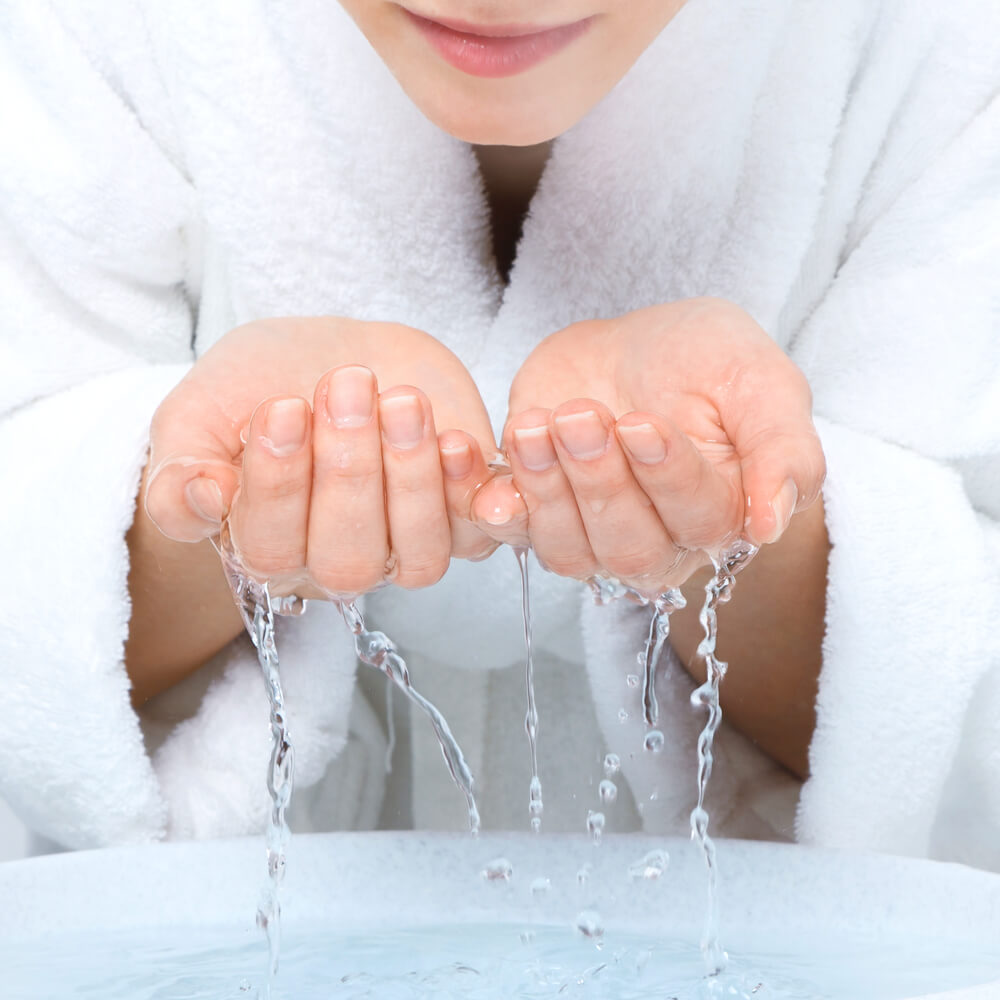The winter months are notorious for harsh winds and frequently brutal temperatures. During the winter months, even as air humidity is naturally lower, households are often heating their homes with forced-air furnaces. Thus, making for an even dryer atmosphere within the home. To combat the colder temperatures, homeowners may also consider turning to the comforts of a hot bath or shower. While both of these activities increase the humidity, the same cannot be said regarding the skin’s moisture levels.
In this post, we will outline what happens to a person’s skin during the winter months and how hard water can compound the problem of dry skin. Here’s how removing hard water may be just the answer dry skin sufferers have been looking for.
The Harsh Effects of Winter Months on Skin
Especially during the months of January and February, some people start to notice that their skin has become very dry. They may experience skin redness and irritation, especially on their face and hands where skin is thinner and more exposed. Some will go on to develop dry patches on their elbows and on the heels of their feet. Some people’s skin becomes so dry and irritated, they’ll develop painful blisters that become difficult to heal. It’s also not uncommon for people to have trouble with a dry, itchy scalp, and they may be unable to style their hair as they would like, due to the annoyance of static cling.
Isn’t Water Hydrating?
While drinking water is certainly hydrating, anyone who does frequent dishwashing or cleaning with hot water knows that hot water can make dry skin even redder and irritated. Water on the skin quickly evaporates and removes a person’s natural skin oils. For those who have hard water, minerals leave an invisible film on skin and hair. This invisible residue builds up and leads to dry, brittle hair that is difficult to manage and style.
When Moisturizing Methods Fail
When a person’s skin becomes very dry and irritated during the winter months, they may turn to some of the “tried-and-true” methods to help improve the moisture content of their skin. They may drink more water and avoid taking very hot baths and showers. They may try using soaps containing colloidal oatmeal, and they may slather on moisturizing creams — all to no avail. After trying all these methods without success, it’s possible they may be fighting a losing battle.
How Installing a Water Softener Can Help
If you’ve tried everything to resolve your dry skin, it may be time to consider installing a water softener unit. Water softeners work by removing excessive minerals in a household’s water supply. Removing excess minerals means bathing products work properly, and they are more easily rinsed away from skin and hair. Since they are less likely to leave a residue behind, a person’s skin and scalp are cleaner and less irritated after coming in contact with water and bathing and cleaning products.
Learn More About Hard Water’s Effects During the Winter Months
If you are tired of blistering, itchy, flaky, and dry skin during the winter months, we may be able to help. Please contact us today for more information on how to improve your home’s water supply by installing a low-maintenance water softening unit.






